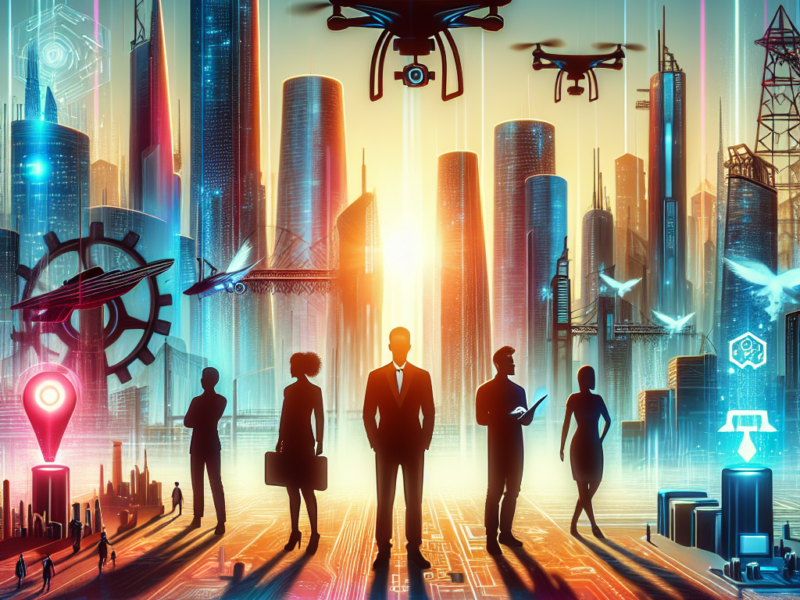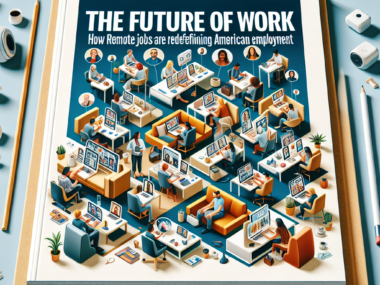As we enter 2024, the technological landscape continues to evolve at an unprecedented pace. Central to this evolution is artificial intelligence (AI), which is making significant strides across various industries. From healthcare to finance, transportation to education, AI is not merely an enhancement but a transformational force that is redefining how businesses operate and how consumers interact with technology. This article explores some of the most noteworthy tech innovations of 2024 and highlights how AI is shaping the future of work and life.
1. Healthcare: Enhanced Diagnostics and Personalized Medicine
In 2024, AI’s role in healthcare has become even more pronounced, with innovations that leverage machine learning and big data to improve diagnostics and treatment. Advanced algorithms can now analyze medical images with remarkable accuracy, detecting diseases such as cancer at earlier stages than ever before. For example, AI tools like Google’s DeepMind have been integrated into radiology departments, significantly reducing the time required for diagnoses.
Personalized medicine has also gained traction, thanks to AI’s ability to analyze genetic data and predict individual responses to medications. Platforms that offer tailored treatment plans are becoming commonplace, ensuring that patients receive care that is specifically suited to their genetics and lifestyle. This move towards personalization not only enhances patient outcomes but also reduces the trial-and-error approach that has historically characterized many treatment regimens.
2. Finance: Smarter Decision Making and Fraud Detection
The financial services industry has witnessed a paradigm shift in how data is utilized, with AI-driven tools providing deeper insights into consumer behavior and market trends. In 2024, AI-powered analytics platforms enable banks and investment firms to make smarter, data-driven decisions. These tools sift through vast amounts of financial data in real time, identifying patterns that humans may overlook.
Moreover, fraud detection systems have become more sophisticated with the incorporation of AI. Machine learning algorithms can now analyze transaction patterns and alert institutions to potentially fraudulent activities almost instantaneously. This capability enhances security for both businesses and consumers, fostering greater trust in digital financial transactions.
3. Transportation: Autonomous Vehicles and Smart Logistics
Autonomous vehicles have progressed significantly in 2024, with AI algorithms refining decision-making in navigation and safety systems. Companies like Tesla and Waymo have rolled out their latest models equipped with advanced AI capabilities that allow cars to interpret complex traffic patterns, recognize pedestrians, and make split-second decisions to avoid accidents.
On the logistics front, AI is optimizing supply chain management by predicting demand and streamlining operations. Companies are using AI to analyze data from various sources, allowing them to anticipate delivery times and reduce operational costs. For instance, AI-driven platforms are helping logistics firms optimize routes in real-time, which has resulted in lower fuel consumption and improved delivery efficiency.
4. Education: Personalized Learning Experiences
In the education sector, AI is transforming traditional learning environments into more personalized experiences. Adaptive learning technologies, powered by AI, now analyze student performance in real-time, allowing educators to tailor lessons to meet individual needs. This shift not only enhances student engagement but also improves educational outcomes.
Moreover, AI-driven virtual tutoring systems provide on-demand support to students, helping them tackle subjects at their own pace. These advancements have made quality education more accessible, especially in remote areas where conventional resources are limited.
5. Manufacturing: Smart Factories and Predictive Maintenance
Manufacturing innovation in 2024 is dominated by the rise of smart factories, where AI interfaces with the Internet of Things (IoT) to automate processes and enhance efficiency. Robotics and AI systems collaborate seamlessly on production lines, learning from each cycle to optimize performance and reduce waste.
Predictive maintenance powered by AI algorithms helps manufacturers anticipate equipment failures before they occur, enabling timely interventions that save costs and maximize uptime. This proactive approach not only enhances operational efficiency but also extends the lifespan of machinery.
6. Customer Service: AI-Powered Chatbots and Personalized Interactions
Customer service has been revolutionized by AI-powered chatbots that provide instant responses to customer inquiries. In 2024, advanced natural language processing capabilities allow these bots to engage in more human-like conversations, resolving issues in real time and offering personalized recommendations based on previous interactions.
Companies are leveraging AI to analyze customer feedback and behavior, gaining insights that inform product development and marketing strategies. This data-driven approach fosters deeper relationships with customers, as businesses can anticipate needs and preferences more effectively than ever before.
Conclusion
The tech innovations of 2024 underscore AI’s transformative impact across industries. As companies harness the power of artificial intelligence, they are not only improving efficiency and productivity but also creating more personalized experiences for consumers. The future of work and consumer interaction is increasingly AI-driven, and those who embrace these changes will likely thrive in this rapidly evolving landscape. The journey has only just begun, and as AI continues to advance, its potential to reshape industries remains boundless.











